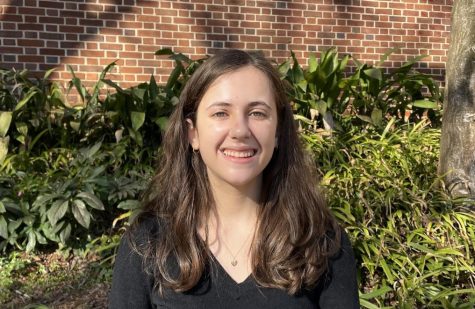Midtown students glimpse true evil of College Board
The College Board, the so-called “nonprofit” that administers the SAT and AP tests, charges exorbitant fees every year, with the promise of college credit and preparation.
November 4, 2021
At the beginning of October, Midtown students received the annual email asking them to sign up for Advanced Placement (AP) tests to take at the end of the year. Though it seemed routine, this email contained a shocking surprise.
AP exams were listed as costing $96 per exam, except for AP Seminar and Research, which cost $144 apiece.
However, about two weeks later, Midtown students were informed that Atlanta Public Schools would be covering the majority of the exam costs. But this mixup caused serious stress within the community and reminded Midtown students how lucky they are with exam subsidization.
Historically Midtown had National Math and Science Initiative (NMSI) funding, which reduced exam fees. NMSI is a three-year program in which students and teachers are financially supported with money for both passing and teaching students who pass specific AP exams. The purpose of it is to increase participation in AP classes and college readiness. With the loss of NMSI funding, exam prices increased for students, resulting in the initial several hundred-dollar-shock.
Midtown students have had it easy for the last few years. NMSI helped students prepare for exams with free study sessions, sent $100 checks to those who passed specific exams and subsidized our exam fees. When our NMSI funding expired, APS stepped in to cover the majority of exam fees. However, most students nationwide aren’t so lucky.
We’ll use my outlier of a twin brother as an example. While most Midtown juniors in the AP program take somewhere between two and five exams, last year, he took seven exams. He paid $43. For most students, those exams would cost $672, nearly sixteen times the cost from last year.
The College Board, the so-called “nonprofit” that administers the SAT and AP tests, charges these exorbitant fees every year, with the promise of college credit and preparation. And to some students, paying $400 to take a few tests may be reasonable for these benefits.
However, when paired with high college application fees, club dues and the cost of SAT and ACT registration, the high price tag is a lot.
And to be considered in the also expensive college application process, students aren’t left with much of a choice but to take AP courses. Many colleges insist that they want you to take the most rigorous courses possible, and AP courses are the most advanced courses offered for high school students at most schools. And since AP classes are built around test-preparation, students feel obligated to take the exam at the end of the year.
But colleges don’t take scores below a three for credit, and in 2019 (the last year of pre-Covid exams), roughly 65.5% percent of students who took AP tests got below a three, meaning that they paid the fee, but failed the test and weren’t eligible for credit. And for students who do score a three or higher, there’s no guarantee they’ll even get credit, especially at elite schools.
However, Midtown students aren’t in the same predicament as other students nationwide. Our tests aren’t hundreds of dollars, making it an easier choice for us to take or not to take AP tests. But while praising the subsidization of our tests, we must acknowledge our privilege in the process. We’ve caught a glimpse of the true, money-grabbing evil of the College Board, but are lucky enough not to have to face the beast head-on.







